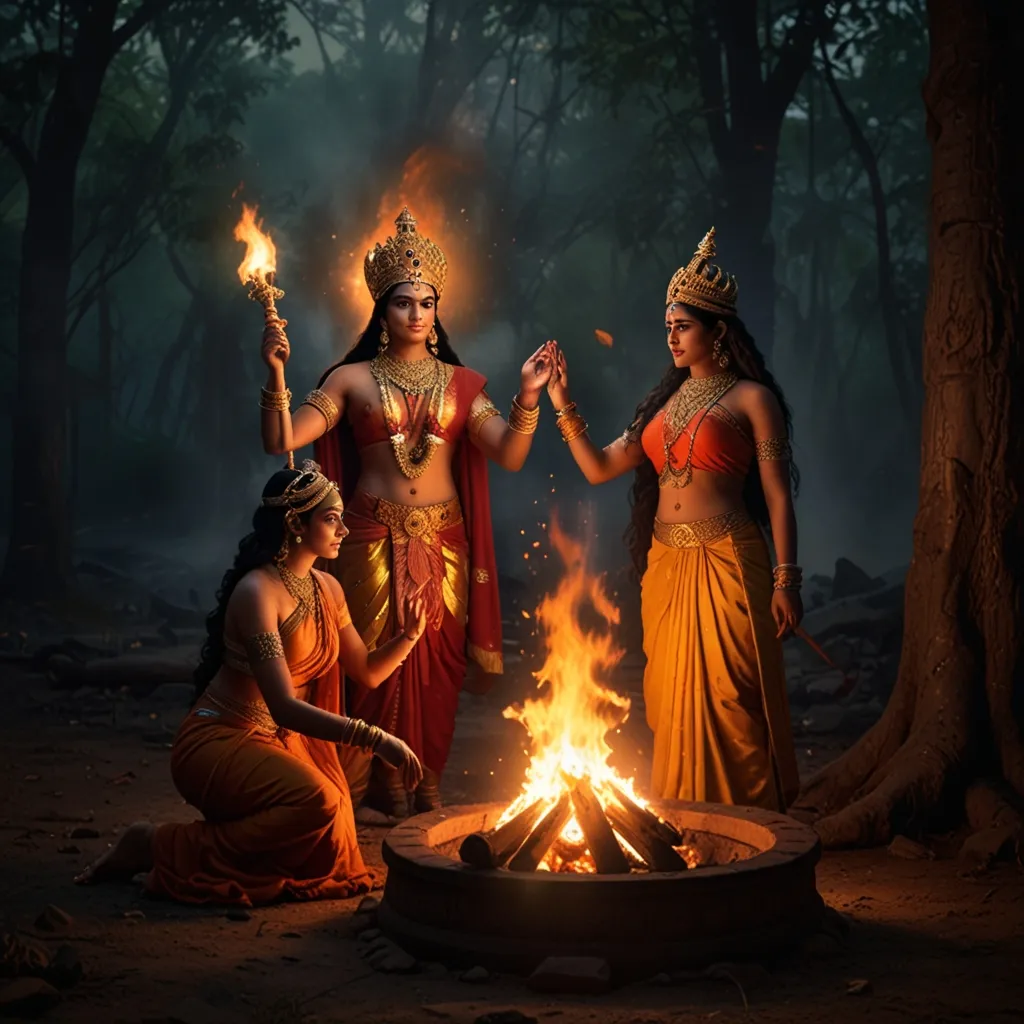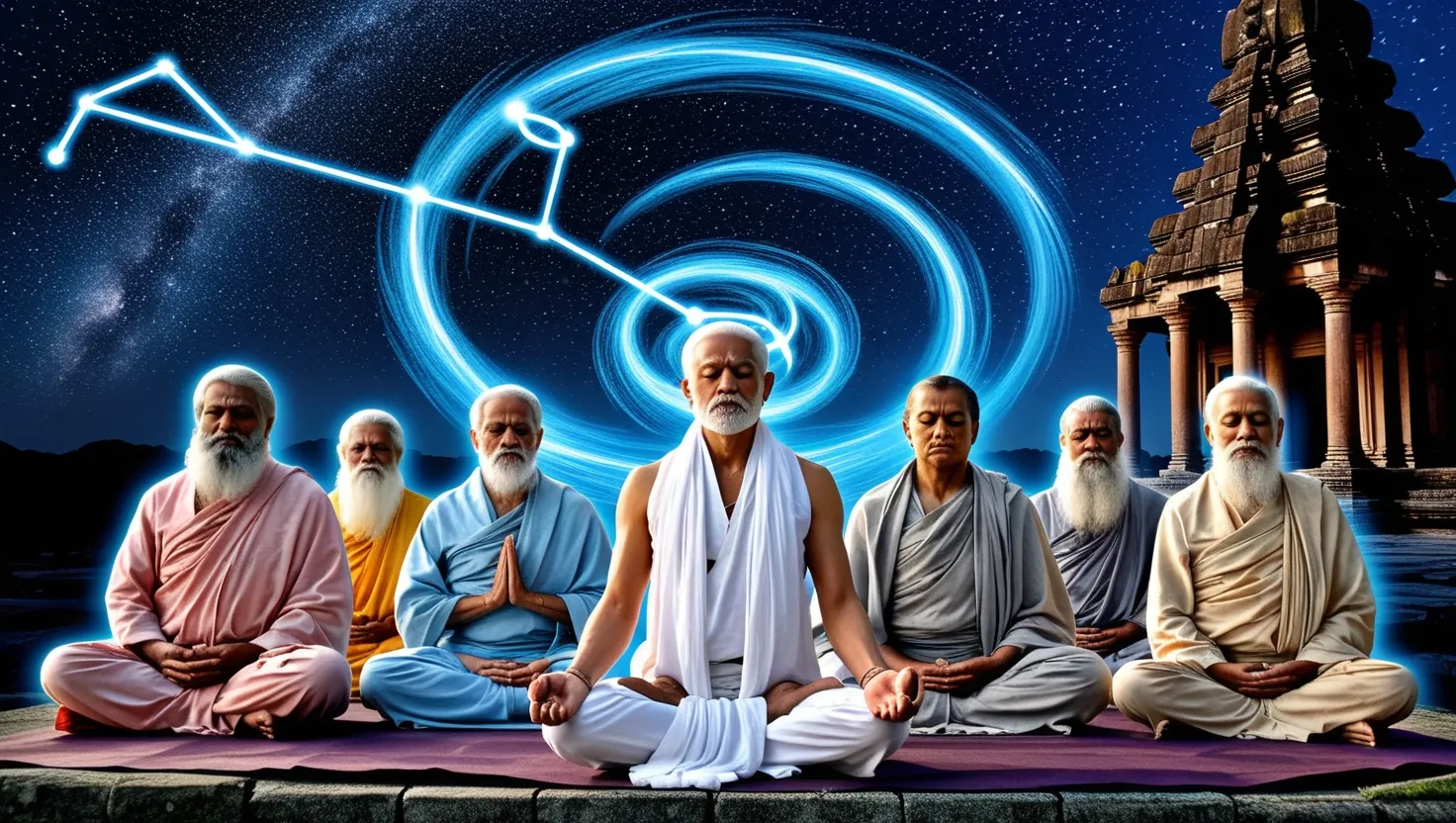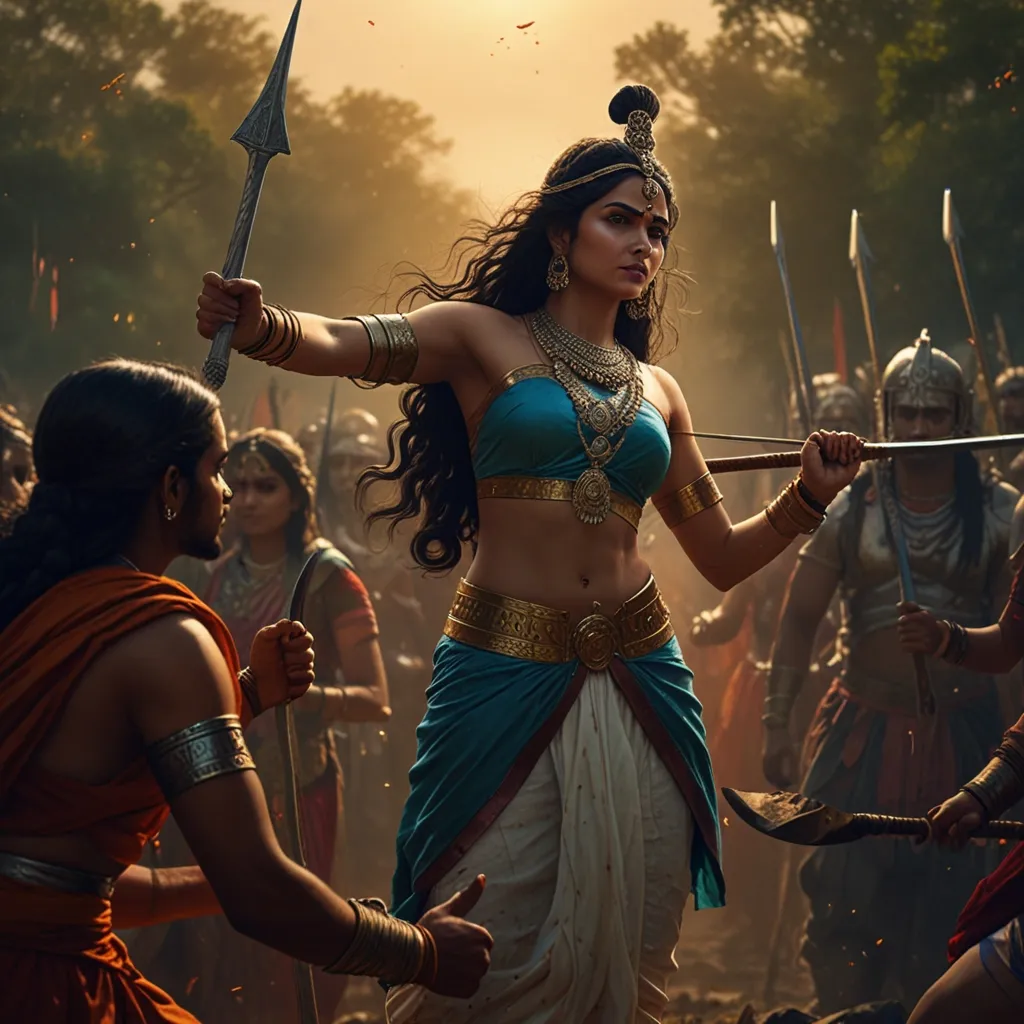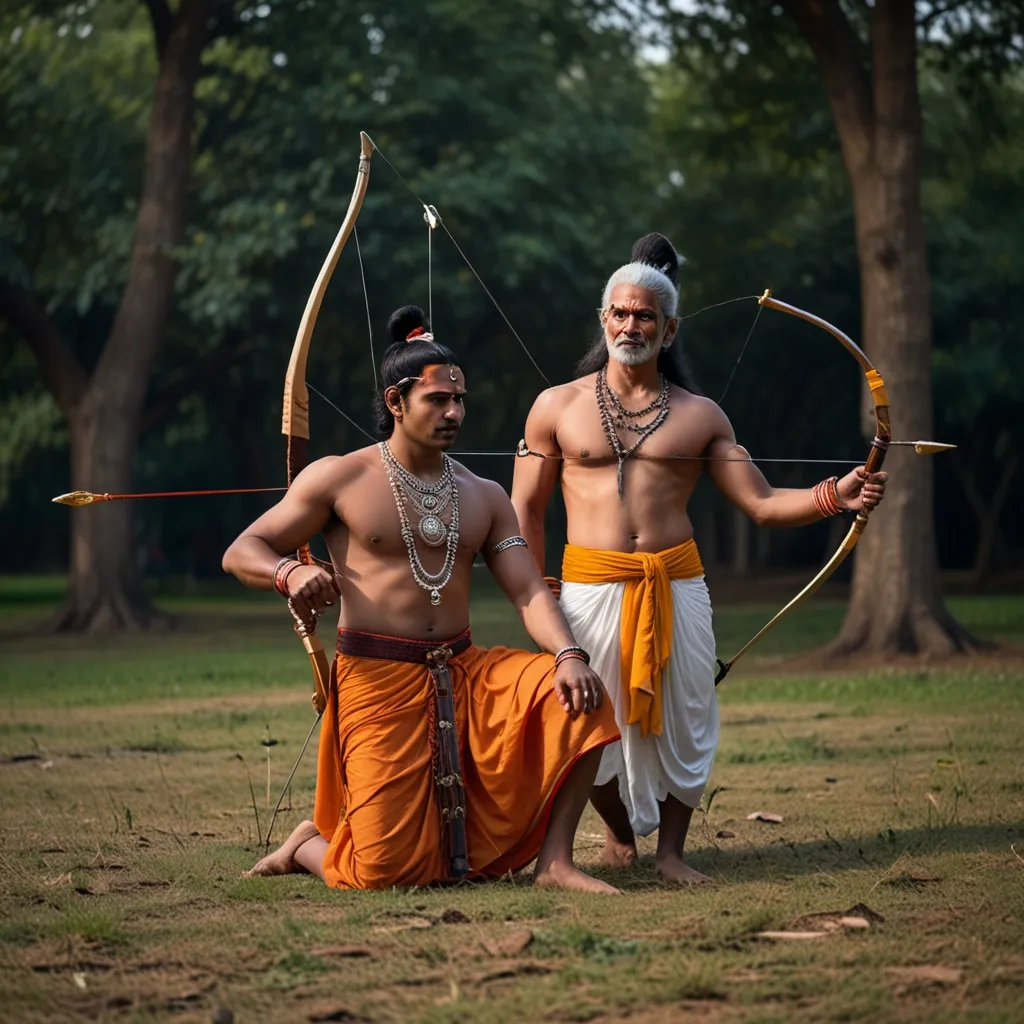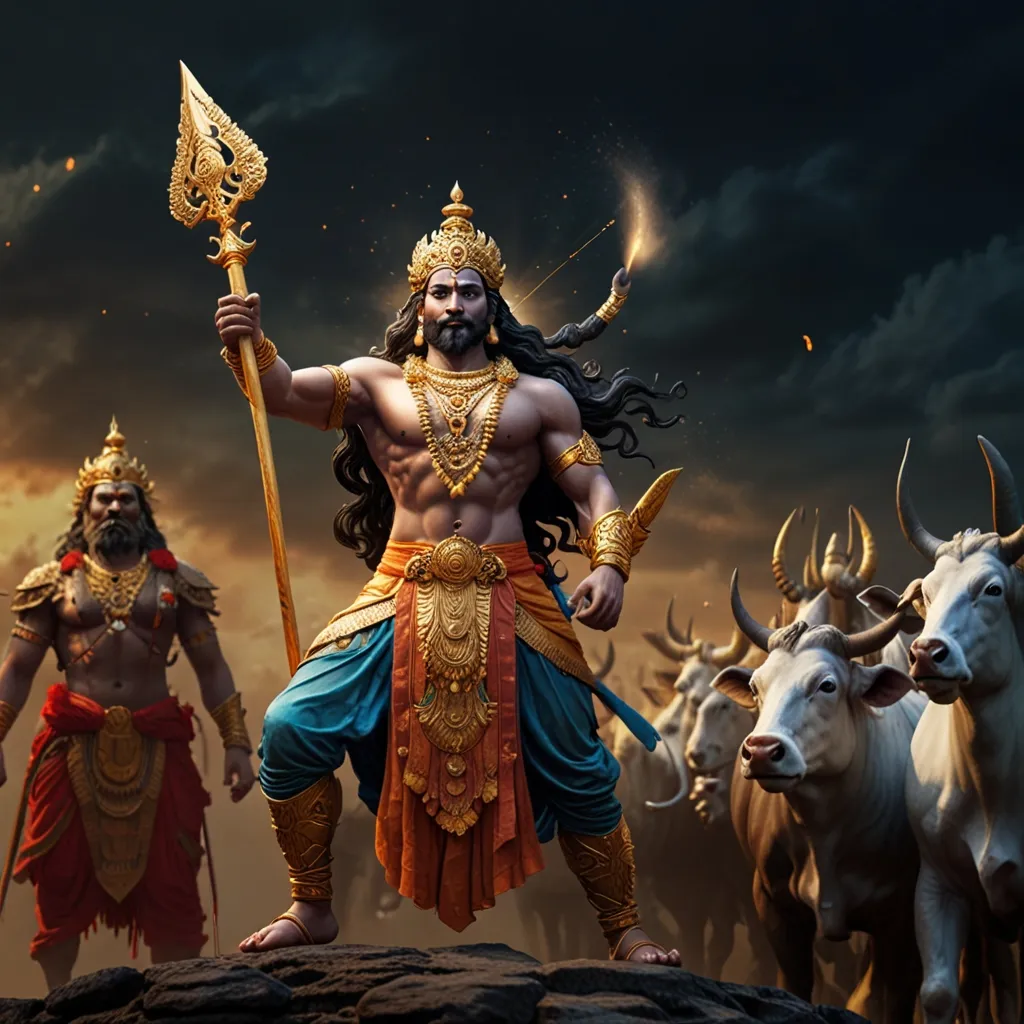King Drupada of Panchala was a man consumed by a burning desire for revenge. He had once been friends with the mighty guru Drona, but their relationship had turned sour over time. Drona had not only humiliated Drupada by defeating him in battle but had also taken half of his kingdom. This was a personal affront Drupada couldn’t let go of.
Accepting that none of his children or allies were strong enough to take down Drona, Drupada decided to take a more mystical route. He planned to perform a yajna, an ancient fire sacrifice, with hopes of obtaining a son powerful enough to avenge him. Enter the powerful Brahmana rishis, Yaja and Upayaja, who were legends for their sacrificial expertise. Drupada first turned to Upayaja with ten thousand kine (cows and other valuables) as an offering to perform the ritual. But, in a twist, Upayaja refused, sticking with his own principles.
Drupada wasn’t one to be easily discouraged. He continued to show deference towards Upayaja, biding his time. After about a year, Upayaja softened and suggested that Drupada approach his brother Yaja, who had a hefty appetite for earthly gains and might be more willing to help. Drupada upped the ante, offering Yaja eighty thousand kine, eventually increasing it by ten thousand more, and Yaja finally agreed.
The yajna turned into an elaborate affair. Yaja poured ghee into the sacred fire and called for Drupada’s queen to partake in the offering. But she had just scented saffron, and before she could cleanse herself, Yaja went ahead and poured the offering into the fire. Out of the flames, a fully armed young man emerged, christened Dhrishtadyumna, meaning “the courageous and splendid one.”
No sooner had Dhrishtadyumna stepped out than a striking maiden followed. She was dark-complexioned and named Krishnaa, meaning “the dark one,” who would later be known as Draupadi, Drupada’s daughter. This pair of extraordinary siblings were accepted into the royal family and raised in the palace, each with a unique destiny.
Dhrishtadyumna was no accidental hero. He was born with one clear mission: to kill Drona. He was an incarnation of Agni, the fire god, and had been the skilled archer Ekalavya in a previous life. His birth came with the prophecy that he would end Drona’s life and bring relief to the Panchalas.
Draupadi, on the other hand, was described as an ayonija, born not from a womb. Her birth too was set to influence the future, with prophecies speaking of the destruction of many Kshatriyas. With her dark complexion, lotus-like eyes, and an enchanting fragrance, Draupadi was extraordinarily beautiful.
Growing up, Dhrishtadyumna trained under Drona himself. Fully aware of the prophecy, Drona nonetheless taught him the highest military arts, making Dhrishtadyumna a formidable warrior. He went on to command the Pandava forces during the Kurukshetra War, leading from the second day until the war’s bitter end.
Draupadi’s life was no less interwoven with epic events. Her svayamvara, a ceremony where a princess chooses her husband, was hosted grandly by Dhrishtadyumna. The competition was intense, but Arjuna, disguised as a Brahmin, won her hand. From here, Draupadi’s life journey became deeply tied to the Pandavas, as she ended up married to all five brothers, a unique marital arrangement.
Dhrishtadyumna’s role in the Kurukshetra War was a pivotal one. He had his sights set on fulfilling his destiny by killing Drona. The Pandavas devised a crafty plan to trick Drona into believing his son Ashwastamma had been killed. Bhima killed an elephant named Ashwastamma and spread the news, which shattered Drona. In deep grief, Drona sat down to meditate, and that’s when Dhrishtadyumna saw his chance. He swiftly approached and beheaded Drona, fulfilling the prophecy of his birth.
Yet, war is never kind, and the aftermath is always tragic. Drona, before dying, had slain Dhrishtadyumna’s own sons on the fourteenth day of the war. And in a sorrowful twist of fate, Dhrishtadyumna too met his end at the hands of Ashwastamma, who infiltrated the sleeping Pandava camp, seeking his own form of revenge.
Despite the tragic end, Dhrishtadyumna’s legacy remained that of a brave warrior who stayed true to his fate. Draupadi, equally significant, carried her own burdens and showcased resilience and grace throughout her life. Together, they embodied a blend of duty, destiny, beauty, and bravery, fulfilling roles that were predestined and central to the complex narrative of the Mahabharata.
The tale of Dhrishtadyumna and Draupadi serves as a powerful reminder of how intricately woven fate can be. Their births and lives were not mere accidents; they were crucial threads in the grand tapestry of the Mahabharata. Their courage, strength, and resilience continue to inspire tales of heroism and the relentless pursuit of one’s dharma, or duty, against all odds.
